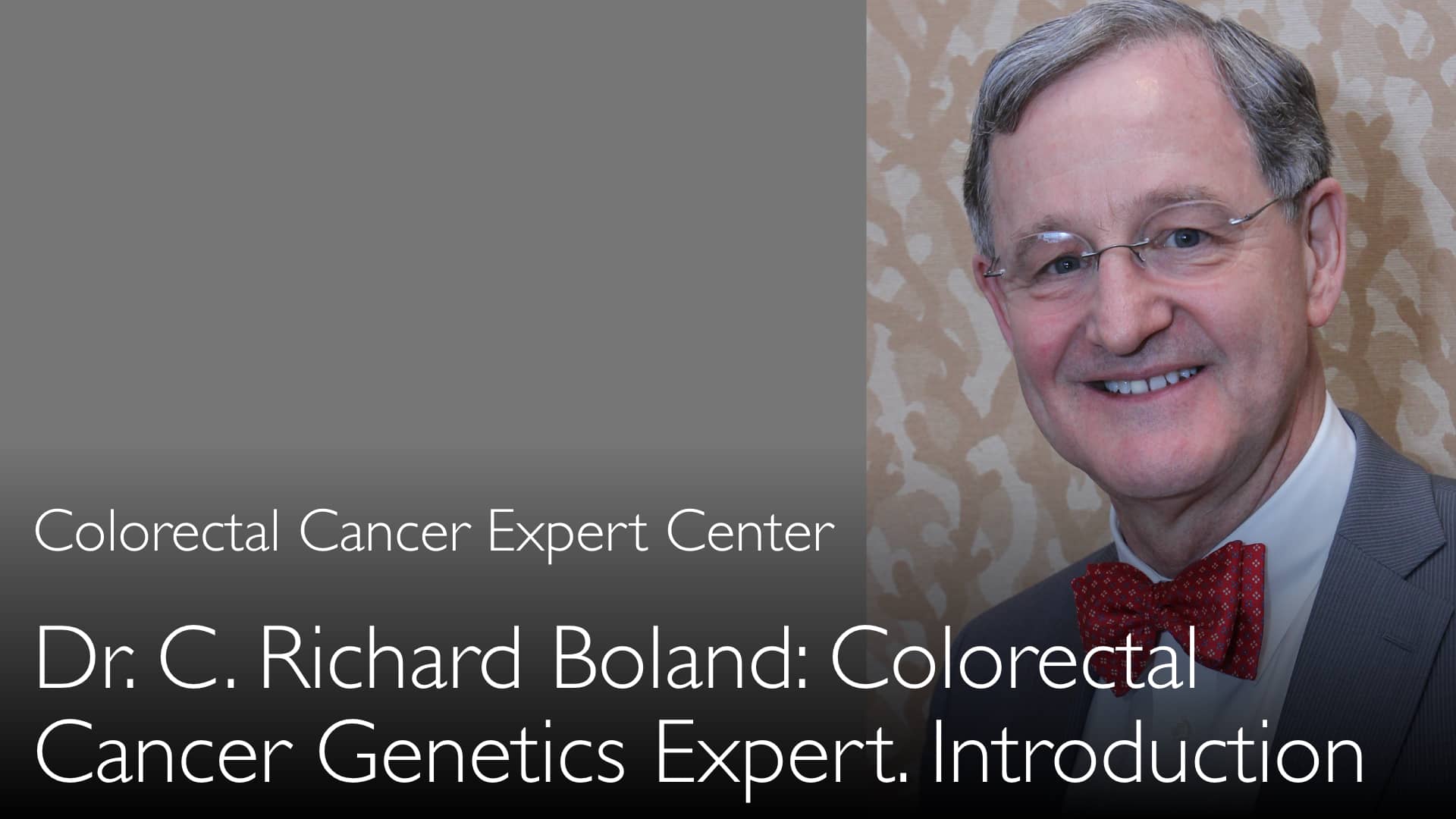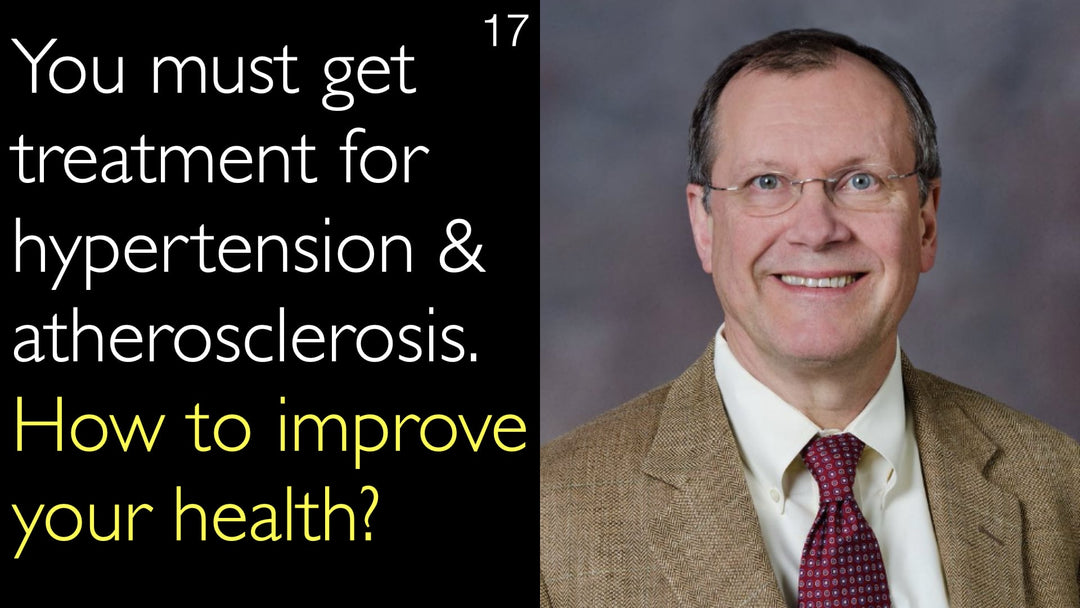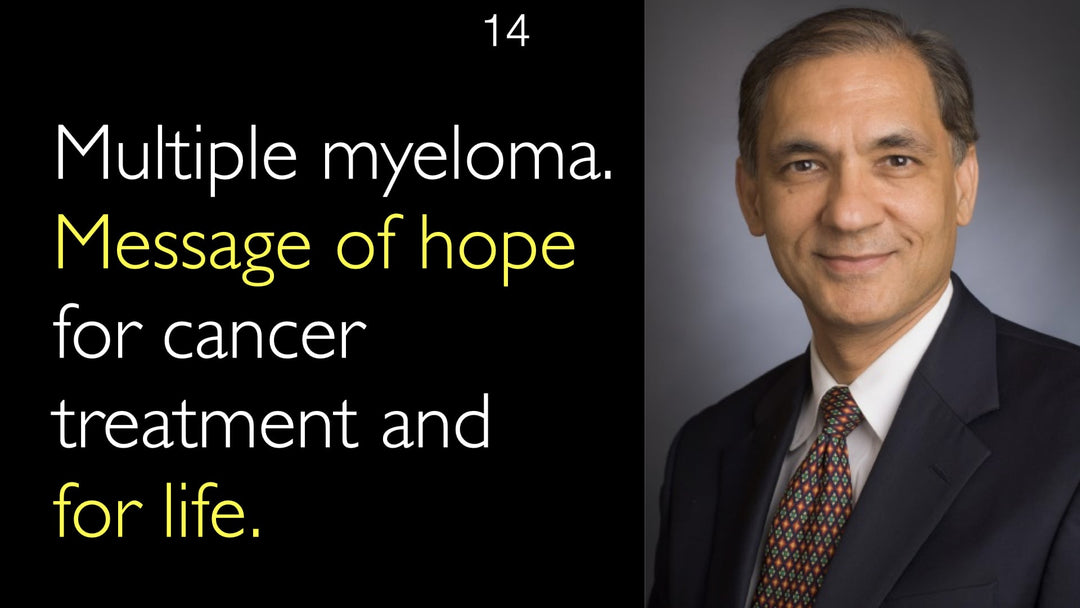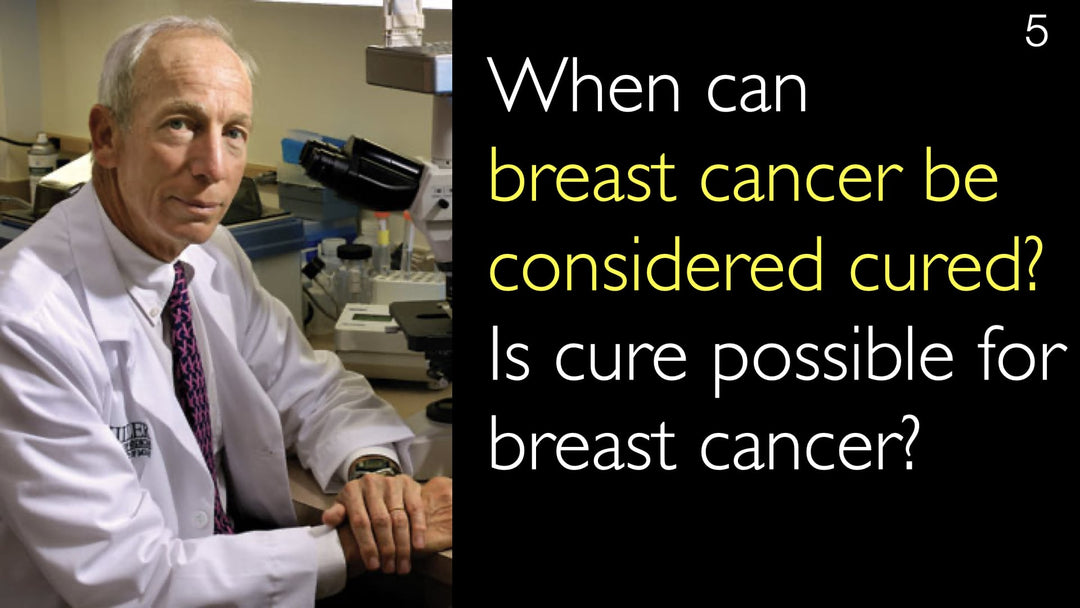Leading expert in gastroenterology and hereditary colorectal cancer, Dr. C. Richard Boland, MD, shares his personal journey uncovering the genetic cause of Lynch syndrome in his family. His book details how early-onset colon and uterine cancers across generations led to groundbreaking discoveries in cancer genetics, ultimately saving lives through targeted screening and prevention strategies.
Understanding Hereditary Colorectal Cancer: A Family's Genetic Journey
Jump To Section
- Family Cancer Legacy Sparks Medical Career
- Lynch Syndrome Discovery Through Personal Tragedy
- Genetic Research Breakthrough in Colon Cancer
- How Genetic Screening Saves Lives
- When Science Meets Family History
- Hope for Future Generations
- Full Transcript
Family Cancer Legacy Sparks Medical Career
Dr. C. Richard Boland, MD began his journey into cancer genetics after his father's death from colon cancer in 1969. As a first-year medical student, he uncovered a disturbing pattern - 10 of his father's 13 siblings developed cancer, often in their 20s and 30s. The family history revealed multiple cases of early-onset colorectal cancer and uterine cancer, suggesting a strong hereditary component.
Dr. Boland meticulously collected medical records and family histories, discovering his father had developed colon cancer at just 25 years old. This personal connection to hereditary cancer would shape his entire career in gastroenterology and cancer research.
Lynch Syndrome Discovery Through Personal Tragedy
The family's cancer pattern matched what Dr. Henry Lynch was describing in medical literature - what we now call Lynch syndrome or hereditary nonpolyposis colorectal cancer (HNPCC). Dr. Boland connected with Dr. Lynch, who shared valuable family pedigree data showing links between colon, uterine, ovarian, breast, pancreatic cancers and melanoma.
Dr. Boland realized his family carried this genetic predisposition, explaining why so many relatives developed cancer at young ages. The discovery of microsatellite instability in 1993 provided the first biomarker for these hereditary cancers.
Genetic Research Breakthrough in Colon Cancer
Collaborating with Dr. Bert Vogelstein, Dr. Boland worked to identify the specific genetic mutation affecting his family. Using blood samples from an affected cousin, they employed advanced gene-hunting techniques to isolate the mutation responsible for Lynch syndrome in his family.
The breakthrough came when they successfully cloned the mutation, allowing definitive genetic testing for family members. This discovery meant that 50% of Dr. Boland's relatives carried the cancer-causing gene, while the other half could be spared unnecessary intensive screening.
How Genetic Screening Saves Lives
With the genetic mutation identified, Dr. Boland's family could implement targeted prevention strategies. Family members with Lynch syndrome now undergo regular colonoscopies, while women opt for prophylactic removal of the uterus and ovaries to prevent uterine and ovarian cancers.
The impact has been profound - every family member with the mutation who follows screening protocols remains alive today. This contrasts sharply with previous generations, where early cancer deaths were common.
When Science Meets Family History
Dr. Boland's book weaves together medical science with personal narrative, making complex genetic concepts accessible. He describes how his family's success in various professions masked their genetic vulnerability, creating what he calls "a terrible secret nobody wanted to discuss."
The story highlights how personal motivation can drive scientific discovery, with Dr. Boland's determination to protect his family leading to breakthroughs benefiting countless others with hereditary cancer syndromes.
Hope for Future Generations
Dr. C. Richard Boland, MD emphasizes the hopeful message of his research - genetic knowledge empowers prevention. While 50% of his family carries the Lynch syndrome mutation, they now have the tools to detect and prevent cancers early.
The book serves as both a medical detective story and a testament to how scientific discovery can transform family health outcomes. Dr. Boland's work demonstrates that understanding hereditary cancer risks can break cycles of early cancer deaths in affected families.
Full Transcript
Dr. C. Boland, MD: Dr. C. Richard Boland is a leading gastroenterologist and colon cancer expert in the US. He wrote a book about his own family called "Cancer Family: The Search for the Cause of Hereditary Colorectal Cancer." This book is about Dr. Boland’s family struggles with colorectal cancer and uterine cancer. His personal family struggle with colon cancer helped him discover a gene that increases colon cancer risk.
Dr. Anton Titov, MD: Dr. C. Richard Boland, MD, you have recently published a fascinating and profound book, "Cancer Family: The Search for the Cause of Hereditary Colorectal Cancer." This is a profound book about your own family's struggle with hereditary colon cancer across many generations, and uterine cancer cases on the female side of your family. Could you please tell us about your book? This is a story that you wrote in a very interesting manner. This story set you off on an amazing career of biomedical discovery with practical implications for the current generation of your own family.
Dr. C. Boland, MD: Yes! When I was a first-year medical student in September 1969, by November my father had abdominal pain. To make a long story short, he had colon cancer and died by the next summer. As he went through his illness, we discussed his situation more. It turned out there was a big story of familial colon cancer in our family that had not been discussed.
I heard a little about it—I knew several people in his family had died from colon cancer. But I felt I really had to understand it better, principally because of my own risk for colon cancer. I was concerned about what would happen to me, my brother, and my two sisters.
It turned out my father had colon cancer at age 25. He was a member of a large family with 13 brothers and sisters. Big families are fun to be around and great for studying genetics. Of the 13 siblings, 10 had some type of cancer. Several had cancers when they were 20 or 30 years old—mostly colon cancer and uterine cancer.
I was going to school in Connecticut, so I went to New York and Pennsylvania where the family homes were. I got records and assembled a family medical history. Then I tried to look for families with colon cancer in the literature. I found such families with many cases of colon cancer, like mine, but not too many.
At that time, there was no biomarker for colon cancer. There was nothing specific about the situation except that some people were very young when they got colon cancers. My father had colon cancer at 25 and a second colon cancer at 49. He had a positive family history of colon cancer with many young people affected. I realized there was something going on.
The book tells about my awareness of what was happening in my family and gathering that information. Then there's a story about how my father and his 12 siblings were all very successful. They were the sons and daughters of a factory worker but became doctors, lawyers, newspaper editors, businessmen, and teachers. They all "made it" in life but had this terrible secret nobody wanted to discuss.
I decided there was a real disease there. Then I found more families like ours. I learned about Dr. Henry Lynch's work—he was very helpful. He sent me all sorts of family pedigrees with cancer that he had collected. Dr. Lynch continued to describe families with a history of colon cancer and figured out the link between colon cancer and uterine cancer, breast and ovarian cancer, and pancreatic cancer and melanoma. These discoveries have stood the test of time.
By 1993, microsatellite instability in colon cancer was discovered by three labs independently and immediately linked to Lynch syndrome. I was collaborating with Dr. Bert Vogelstein on colorectal cancer genetics. Most people on my father's side who carried the gene had already died of colon cancer.
There were 27 first cousins altogether. One cousin already had uterine cancer and gastric cancer. I got blood from her, made a cell line, and began hunting for the cancer-causing mutation. Dr. Vogelstein couldn't find any mutation initially—we had to use a fancy gene-hunting technique to separate the mother's and father's genetic alleles.
Ultimately, I cloned the mutation responsible for Lynch syndrome in my family. Since then, we know 50% of my family carries the Lynch syndrome gene, and 50% does not. Those without the mutation don't need intensive screening. Those with it must have intensive colonoscopies, and women must have their uterus and ovaries removed. But everyone is alive—every single person since we found the mutation. That had never been true before.
The book is about my awareness of cancer in my family, my commitment to tackling the problem because nobody else would, and realizing I had to find the causes of colon and uterine cancers in my family because it was my own problem. Then good science came along—we were able to find the gene. The book traces my initial wondering, doubt, and eventual realization that becoming a laboratory scientist could help solve the problem. It ends on a positive note because everyone in my family is doing well.
Dr. Anton Titov, MD: This is a fascinating story because so many generations of your family struggled with several cancers, setting you on a personal discovery path. But your path wasn't just theoretical—it was a real-life situation affecting your own family. That is amazing!
Dr. C. Boland, MD: It's a very interesting book to read. There's sociology, genealogy, and a little science. At one point, I explain how the Lynch syndrome gene was discovered in a way everyone can understand. In the end, there are nice outcomes from finding these mutations—it was good for my family.
Dr. Anton Titov, MD: You've solved the medical mystery of your own family. That is amazing!
Dr. C. Boland, MD: Yes!
Dr. Anton Titov, MD: Dr. Boland, thank you very much for this extensive conversation about colorectal cancer genetics, risk factors, treatment, novel tumor markers, and prevention by dietary substances like curcumin. It was fascinating! We hope to speak with you again in the future.
Dr. C. Boland, MD: I'll be here! Thank you very much, Dr. Titov. I appreciate it!








